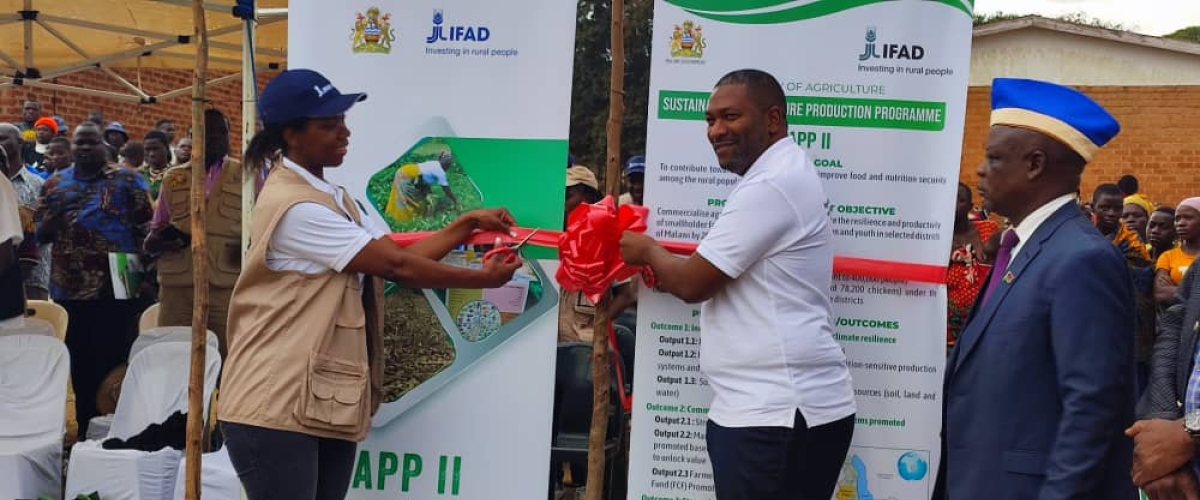
By Jacob Nankhonya
The Sustainable Agriculture Productivity Program II (SAPP II), which has just been launched, aims to create viable and sustainable markets for small-scale farmers.
Speaking during the launch on Tuesday in Lilongwe, Minister of Agriculture Sam Kawale said that SAPP II has a strong focus on agricultural commercialization. Among other things, it will facilitate partnerships between producer-farmer organizations and the private sector for input and output market penetration and foster opportunities for groups to access mainstream financing.
Said Kawale, "The project’s own Farmer Challenge Fund, a rural financing matching grant facility, will also support groups and farmer organizations in producing for the market and commercializing, with targeted financing to address constraints at the supply side of the value chains."
The program will be financed with $53 million over seven years and implemented in four districts: Lilongwe, Dowa, Nkhotakota, and Mzimba.
A comprehensive financing plan includes a direct International Fund for Agriculture Development (IFAD) contribution of $18 million, $8 million from the Government of Malawi, $4 million from beneficiary contributions, $4 million leveraged from banks, $10 million from the Adaptation Fund, and $2.7 million from the EU-ILSA, and another $4 million from the US government through the Vision for Adapted Crops and Soils (VACS). As a testament to our commitment, $3 million has already been disbursed to the program, marking the beginning of our journey toward the success of SAPP II.
Kawale also said this program is different from other programs targeting agriculture Commercialisation, such as AGCOM.
He further added, "It's important to note that SAPP II is designed to cater to a wide range of farmers, particularly those who are just transitioning from subsistence farming. This inclusivity sets it apart from other programs like AGCOM, which target farmers with more resources."
In this way, he said, the agricultural commercialization drive is more inclusive and forms a continuum. Furthermore, there are linkages and complementarities across the different agricultural commercialization initiatives being implemented in the country.
Country representative for IFAD in Malaŵi, Bernadette Mukonyora, said that it is high time farmers "grew what they can sell as opposed to just selling what they have grown."
She said, "SAPP II aims to further contribute to rural poverty reduction through the empowered participation of poor rural women, men, and youth in the sustainable transformation of agriculture." The program will ride on the achievements of the SAPP One program, which has just been phased out. SAPP One was implemented in Chiradzulu, Blantyre, Balaka, and Lilongwe. According to the program coordinator, Rex Baluwa, beneficiaries experienced a 28 percent increase in income from crop production compared to non-beneficiaries.
Said Baluwa, "Food insecurity among beneficiaries was significantly reduced, leading to improved crop and livestock productivity and better nutritional outcomes. This improvement was attributed to enhanced crop yields, diversification, and nutrition activities introduced by SAPP." He also said that SAPP beneficiaries adopted more good agricultural practices (GAPs), such as the use of non-tillage, grass strips, swales, crop residues, improved fallow, compost, legume cover crops, and crop rotation. Adopting GAPs led to a 16 percent higher value of crop production for beneficiaries, particularly under high climatic anomalies, thus supporting the Programme Development Objective (PDO). It was a nine-year program with an initial funding of US$52 million before additional funding of US$ 616,000 was activated to cushion the aftermath of COVID-19 and some shocks. The author is the Staff Writer for the SAPP Project.





